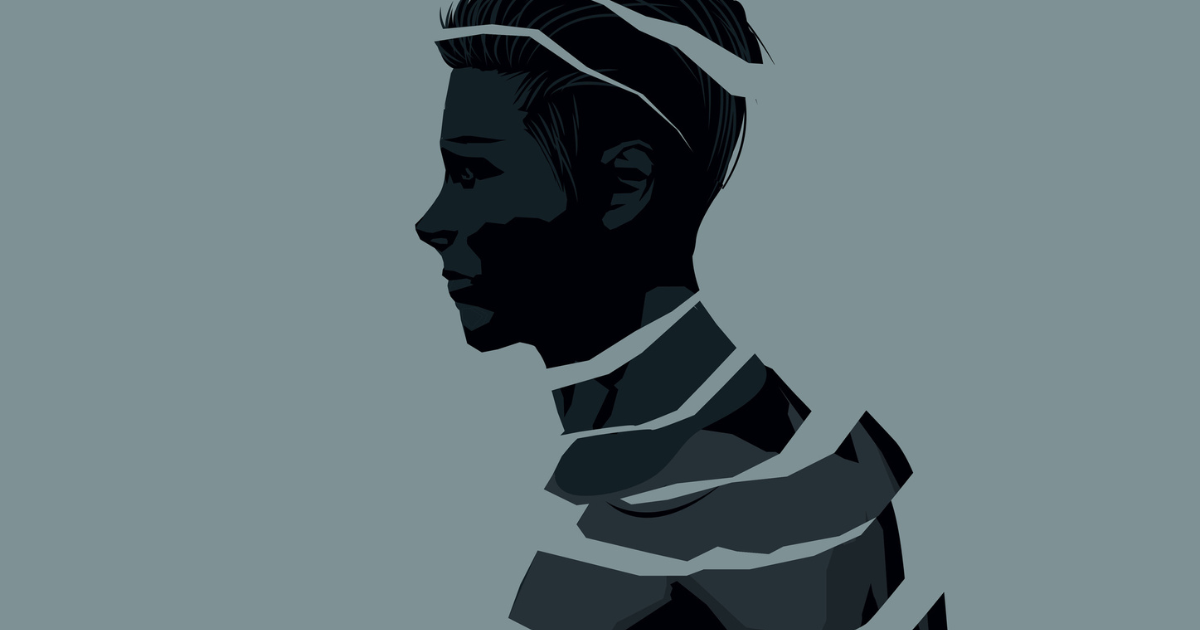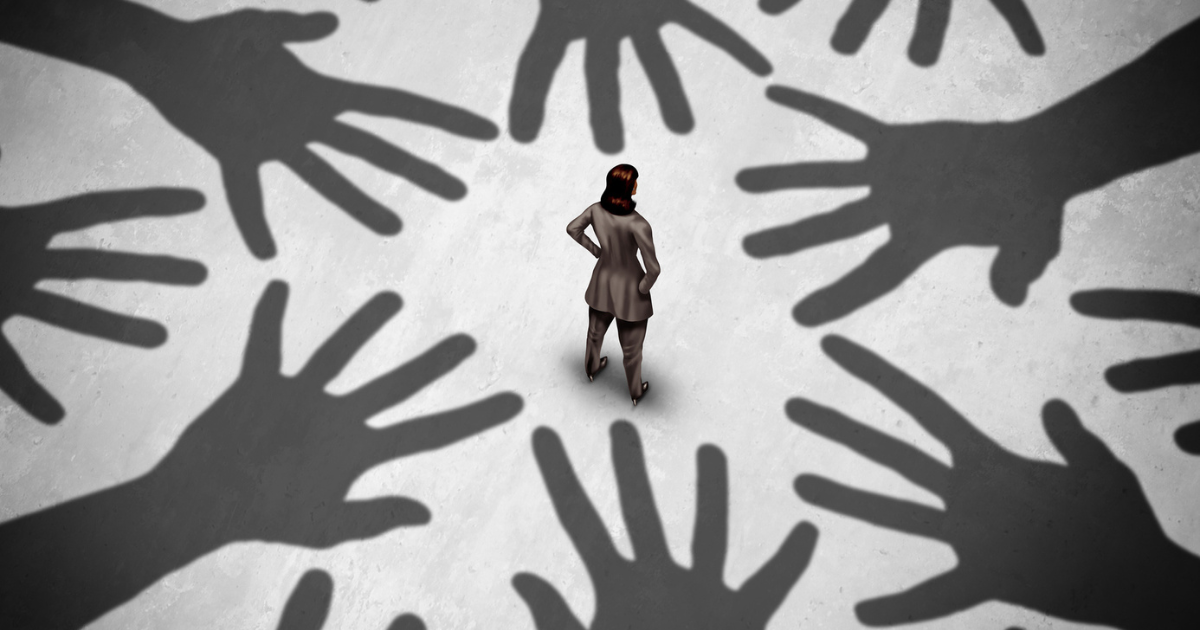Addiction and SUD (substance use disorder) can be truly damaging to the people who experience them, as well as their family members and other loved ones. Like many other conditions, recovering from SUD requires treatment as well as support and understanding from the people in your life. Unfortunately, addiction comes with a significant level of stigma here in the United States. That can make accessing treatment very difficult for those who need it; worse, re-entering society after treatment can be equally as difficult.
While we may have seen a bit of a decrease in the stigma around addiction and SUD in recent years, as more people are finding platforms to tell their stories, there is still a great deal of work to be done. Learn how you can help break the stigma of addiction and even provide inspiration for people in recovery.
Substance Use Order
Substance use disorder is a serious condition that affects over 46 million people in the United States alone. While this number is certainly concerning, it’s important to note that SUD is a rapidly changing thing and may be a much larger issue than we previously believed. We now know that this complex mental health-associated condition requires compassion and skilled treatment for people to find recovery.
Addiction is generally recognized as the most severe form of a substance use disorder. SUD can begin to take root when a person starts using a substance recreationally or as an escape from stressful elements in their life. Over time, as substance use occurs much more frequently, constant exposure to mind-altering chemicals can actually influence the brain to rewire its normal pathways, affecting the way its reward system works.
Those with addiction and SUD typically find that they cannot experience the pleasurable sensations caused by the reward system – or even participate in normal functions – without the presence of the substance. When the person is unable or unwilling to cease the use of the substance despite the significant problems it is causing, they have become addicted to that substance.
It’s important to note that just as no two people are the same, no two addictions are the same. For example, when mental health is a factor, as it often is, the situation can become even more complex, as now there are two disorders that are affecting each other. Regardless of the personal factors affecting addiction, SUD is a serious condition that requires treatment. As it has developed over time and due to a number of factors like mental health, environment, and genetics, effective treatments will address each contributing factor.
The Stigma Against Mental Health Addiction
The social stigma surrounding addiction refers to a note of disgrace, disapproval of, and even discrimination against people with addiction and SUD. On a more basic level, stigma can refer to just the mention of addiction and how it fuels the negative feelings that still surround mental health and SUD. This is why many people choose to use the more clinical term, substance use disorder, rather than addiction, substance abuse, and other common terms.

What Factors Influence Stigma Related to SUD?
Society creates the basic structure by which most of us live our lives, but it can create pressure to follow along in order to fit in. This pressure can complicate the lives of people experiencing addiction and SUD. The feeling of societal pressure, the internalized pressure we put on ourselves, and the sense that we are failing to live up to those expectations can perpetuate negative feelings.
Some of the societal factors that influence the stigma surrounding SUD include stereotypes, blame, knowledge and information, media portrayals, experience, and culture.
Stereotypes
Many stereotypes are frequently associated with SUD and the people who experience it. For example, the idea of people with SUD being unpredictable and dangerous is one common stereotype about SUD. These stereotypes can affect not only the way that people treat people with addiction but also the way they are viewed by society. Societal stereotypes can affect public policy by restricting the rights of those who suffer from SUD and causing them to feel like they have been separated from the rest of society.
Blame
Blame has a major influence on the stigma surrounding SUD. Societal stigma commonly suggests that the person alone is responsible for their SUD and their position in life. This can be incredibly damaging, especially since there are numerous risk factors for SUD. Not only does society lay a great deal of burden and blame on people with SUD, but these people also blame themselves.
Lack of Knowledge and Information
A lack of knowledge regarding SUD, how it develops, and how difficult it is to reach recovery also contributes to stigma. Worse, not only does a lack of knowledge influence regular society, but it can also bias doctors and other healthcare professionals and prevent individuals from receiving necessary care and attention. When people are armed with more knowledge, they’re much more likely to have a neutral view of SUD and mental health disorders. They’re more aware of what life may look like for people with SUD and can better understand their struggles and the need for treatment.
Media Portraylas
How the media portrays people struggling with different kinds of disorders can have a significant effect on how other people perceive them. Because these portrayals typically reach a much wider audience than any other kind of influence, they risk supplying information that may not be accurate to many viewers. Negative, biased, or inaccurate portrayals of people with SUD in the media not only affects the way people feel about these individuals and how they treat them, but it can also harm how these people feel about themselves.
Experience
Among the most influential components that can affect the stigma surrounding SUD and mental health is people’s real-life experiences. When people come in contact with others who have SUD, they have a direct picture of the disorder. This doesn’t mean, however, that more contact positively affects opinions.
Because people are in different stages of recovery at different times, it may be that when others are in contact with people with SUD, they’re only seeing one side of the disorder. They may only experience these people in their worst moments or may only have memories of a traumatic experience with a friend or loved one with SUD. This can add to the stigma, as feelings and opinions often become a component of the full stigma picture.
Culture
Culture has a direct impact on how a person perceives SUD. Different cultures and socioeconomic groups may hold different general biases regarding SUD. In addition, people with SUD or mental health struggles are often treated differently when they’re from certain cultures or socioeconomic groups. This can mean they receive different kinds of care and are judged differently regarding their symptoms.

Harmful Effects of Addiction Stigmas
Stigma can affect people in a few different ways. For example, a person with mental health issues or SUD might face discrimination in their personal lives or careers. They’re also more likely to be labeled as untrustworthy, lazy, unstable, or dangerous on both a personal and professional level. Even today, many people think mental health conditions or SUD are an indicator of something wrong with a person. These things have been seen specifically as moral failings on the part of the sufferer.
Aside from the ways that others may treat people with SUD, there are also the feelings these people may have as a result. Because mental health and SUD hold such a stigma in society, people often internalize negative feelings like shame, hatred, or embarrassment. They may also think that they need to hide their struggles from the people around them, which can exacerbate the issue. A fear that loved ones, coworkers, bosses, and society at large feels embarrassed or ashamed of the condition can make it difficult to seek mental health and SUD treatment.
Three major areas can be affected by the stigma surrounding addiction: policy, barriers to care, and detachment:
Policy
Policy is one serious way that those with SUD can be harmed because of stigma. As so many people have such a negative opinion of those with SUD, policies are frequently made without care or compassion for the individuals who are suffering. Sometimes, they’re not considered at all when sweeping policy changes are made to the healthcare landscape.
Barriers to Care
People also experience barriers to care when they have SUD, particularly those struggling with opioid use disorder. Shame, judgment, and even policy or organizational decisions from others can effectively keep people from receiving the care that they need, either directly or indirectly. Too often, people set up their own barriers to care because they feel like they deserve their situation.
Detachment
Stigma can cause people struggling with SUD and addiction to feel uncomfortable, unsafe, and unloved by those around them. Additionally, the people in their lives may choose to detach themselves from those who are struggling because they have negative feelings about the disorder. While loving detachment may be a boundary a loved one needs to set to keep themselves safe, sometimes the stigma is to blame.

How to Break the Stigma of Addiction
Stigma can be hard to break down, but it’s crucial to address stigma and learn the truth about those who experience SUD and addiction. This is a serious condition that affects people from different backgrounds, socioeconomic classes, and cultures, and in order to challenge societal perceptions, it’s important to ensure others can see the reality. Here are some specific ways that you can help break the stigma surrounding SUD and addiction:
Learn More About Addiction
Rather than making assumptions and regarding how SUD works, how it impacts people and families, or how it can be addressed, learn more about addiction and recovery. Actually, taking the time to learn more about the precipitating factors surrounding SUD can help to change our understanding of it. When we make assumptions that aren’t rooted in fact, we can share that false information that furthers the stigma of SUD.
Spread Awareness
Once you’ve learned about addiction, sharing that information can make a huge difference. With social media such a prevalent part of our lives, it’s important that any information that is shared is rooted in fact rather than stereotypes. When we share meaningful information and resources with others, we can help educate more people.
Help Someone Get Help
Addiction and SUD are so common that chances are, you know someone who is struggling. It can be difficult to be the first person to reach out and offer a helping hand, but simply knowing you’re there and willing to help can make a major impact on the life of the person who is struggling. It can also show others that seeking help is okay and that they’re not alone on their journey.
Be Welcoming
It can be one thing to gain an education about SUD and to share this information, but it can be quite another thing to be accepting of those with SUD. This, of course, starts with your own family, friends, and coworkers but can also extend to your neighborhood or community. Opposing treatment facilities or sober living homes in a neighborhood can be harmful, and it can make people feel even more unwanted. Instead, supporting these facilities in your neighborhood is a great way to banish stigma.
Use More Inclusive Language
As mentioned, there are many terms that have been used to discuss SUD, but many of them take humanity out of SUD. Others directly imply that people with SUD are bad people or assign immorality to the issue. For example, drug abuse is one such term, as abuse is inherently negative. The terms junkie or addict are other ways people reduce SUD to a perceived negative quality of the individual. Even “getting clean” as a reference to recovery implies that the alternative is only accepted by dirty people. It’s important instead to use person-first language that puts a person before the condition – say a person with SUD or a person in recovery.
Get Help When You Need It
If you’ve recognized an issue in your own life, there’s nothing wrong with admitting you need help. Being proactive shows that you care about your life and your loved ones and that you’re ready to get your life on track. By reaching out for help if you need it, you can show others that treatment works and that getting help is not only acceptable but important.

Fight the Stigma of Addiction Recovery
Being an advocate for the recovery and SUD community can help in innumerable ways. Recognizing the damage stigma can cause and how you can make small changes can make a huge difference in the lives and perceptions of others. The stigma surrounding SUD and addiction runs deep, but with enough work, we can destigmatize SUD.
Addiction Freedom Now is an addiction recovery community dedicated to providing resources to help fight the stigma of SUD. If you or a loved one is amidst a struggle with SUD, we have a toolkit with support, resources, and even a sober housing initiative. Join the community or get in touch with us to learn more today.
References :
- Committee on the Science of Changing Behavioral Health Social Norms. (2016, August 3). Understanding stigma of mental and substance use disorders. National Library of Medicine; National Academies Press (US). https://www.ncbi.nlm.nih.gov/books/NBK384923/
- Dannatt, L., Ransing, R., Calvey, T., Scheibein, F., Saad, N. A., Shirasaka, T., Ramalho, R., Pant, S., Vadivel, R., Siste, K., Stowe, M. J., Kalita, K. N., Boujraf, S., Testa, R., Arya, S., Morgan, N., & Grandinetti, P. (2021). The Impact of Stigma on Treatment Services for People With Substance Use Disorders During the COVID-19 Pandemic—Perspectives of NECPAM Members. Frontiers in Psychiatry, 12. https://doi.org/10.3389/fpsyt.2021.634515
- Substance Abuse and Mental Health Services Administration (SAMHSA). (2023, January 4). SAMHSA Announces National Survey on Drug Use and Health (NSDUH) Results Detailing Mental Illness and Substance Use Levels in 2021. HHS.gov. https://www.hhs.gov/about/news/2023/01/04/samhsa-announces-national-survey-drug-use-health-results-detailing-mental-illness-substance-use-levels-2021.html




